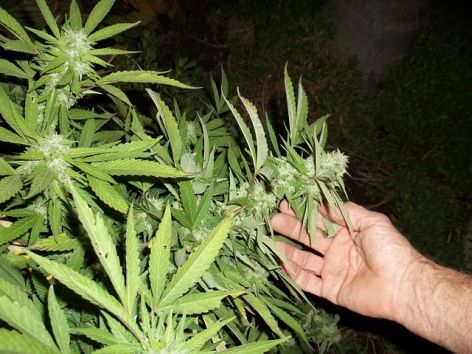Using, selling, and manufacturing drugs are illegal on their own. Did you know, however, that people who use drugs are far more likely to commit other types of crimes as well? The relationship between crime and drug use is well established — from damaging property to domestic violence and murder, people who use and abuse drugs are far more likely to break the law than those who don’t.
Evaluating the Percentages Police officers often test those they arrest for drug and alcohol use. Nearly 80 percent of men and women arrested for drug sale and possession tested positive for drugs, according to the National Institute on Drug Abuse. Did you know, however, that more than half of all people arrested for forgery also tested positive for drugs? How about burglary? From possession of stolen property and weapons charges to assault, many if not most who commit crimes are under the influence of drugs or alcohol. When considering the physical and emotional effects of drug and alcohol abuse, these statistics are not as surprising. Addiction changes how the brain manages stress, reward, and learning. Those who begin casually abusing these substances often return to them because of the temporary relief or relaxation they feel when using. Over time, however, these feelings turn to paranoia, depression, and anxiety. Trying to quit worsens these symptoms and often causes extremely unpleasant withdrawal effects. Anxious to avoid withdrawal — and often out of money — the addicted individual might turn to crime out of anger, fear, and desperation.
Using to Support a Drug Habit The Bureau of Justice Statistics reports that nearly 20 percent of state prison inmates committed a crime to support a drug habit. These inmates, convicted of burglary, theft and robbery, used stolen funds — or sold goods to secure funds — to buy drugs and avoid withdrawal. In addition, because selling drugs is often associated with violent crime, both buyers and sellers are more likely to become the victim of assault or homicide, particularly with illegal handguns. In the 75 most populous counties in the U.S., homicides frequently resulted from drug disputes, scams or deals gone awry, according to BJS. Finally, BJS notes that people who are convicted of a drug-related crime usually demonstrate several contributing factors in addition to drug use. Not only do many drug arrests take place in disadvantaged neighborhoods, there may also be a family history of abuse, a negative environment, and other important factors. Nevertheless, the relationship is clear: drug use and crime go hand in hand. (Photo via)

